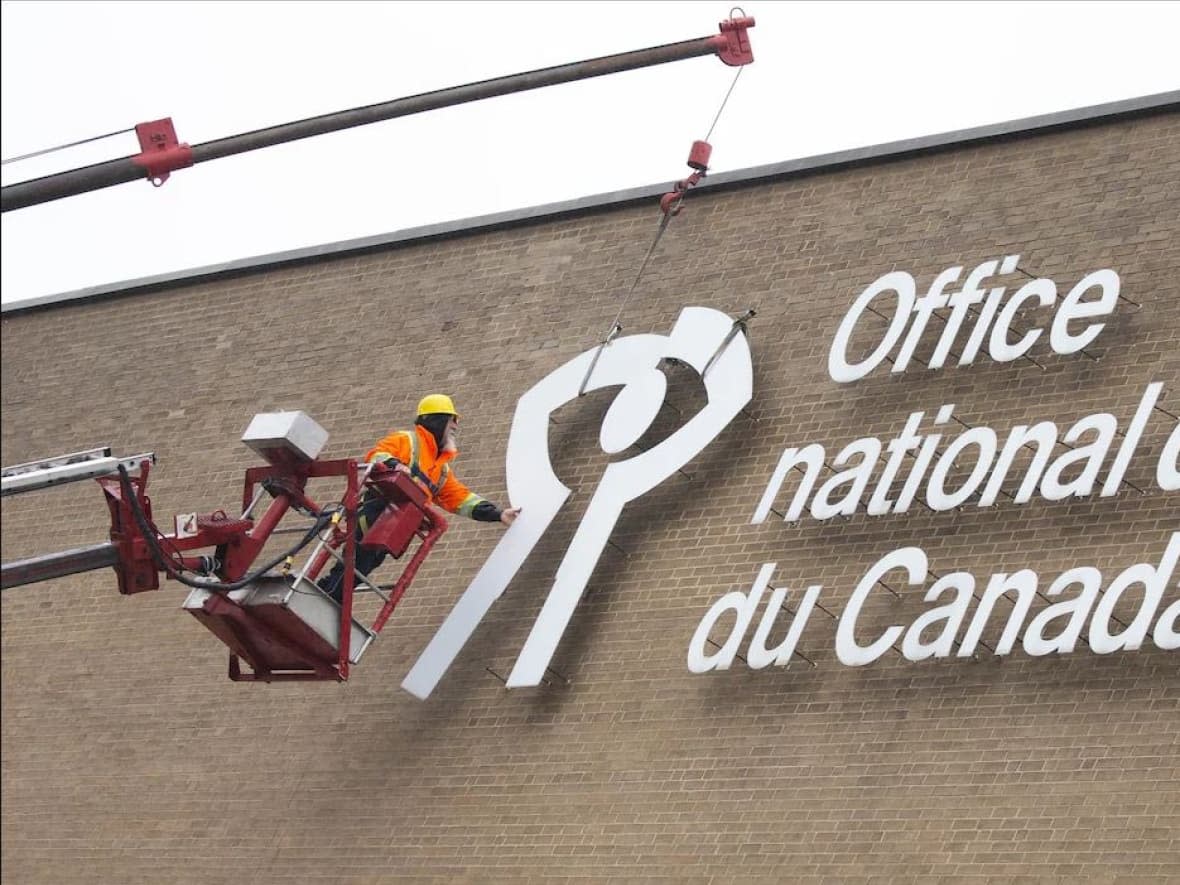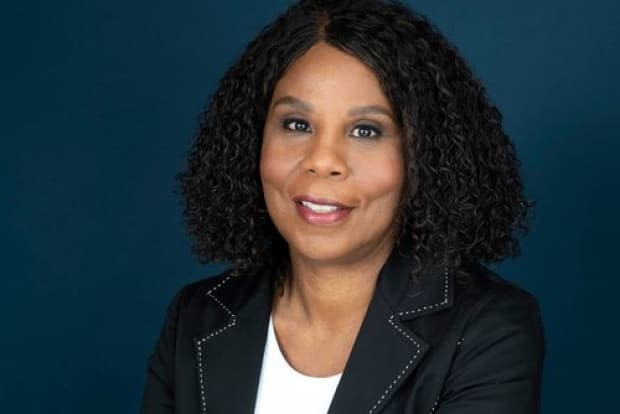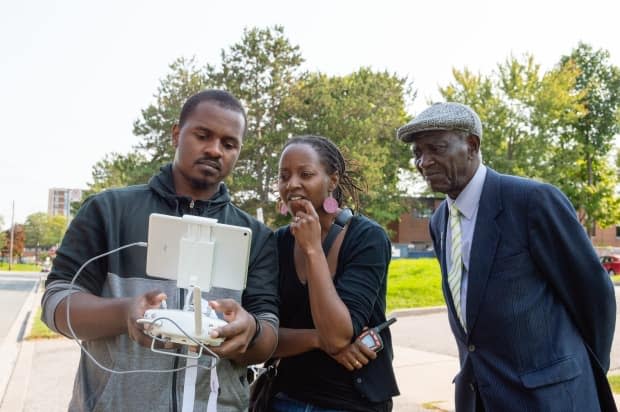National Film Board needs to do better by Black and racialized filmmakers, advocates say

The National Film Board — as Canada's publicly funded film producer and distributor — is often a springboard for emerging filmmakers, as well as a champion of established talent. With over 80 years of history, some of the country's finest moviemakers have passed through its doors.
But the organization hasn't provided adequate opportunities to Black and racialized filmmakers in five of the last 10 years, according to a recent report by the Racial Equity Screen Office, a Vancouver-based film equity organization.
Five researchers parsed through the board's online database, which lists hundreds of its produced and developing projects, to determine how many were directed by Black, Asian or racialized filmmakers in the past decade.
The breakdown showed that there was no upward trend in this category, with the exception of Indigenous filmmakers in 2021, who directed 37 per cent of NFB-produced films that year.
"You don't really need a study to tell you that they've done nothing," said Joan Jenkinson, the co-founder and executive director of the Black Screen Office, a separate organization which advocates for Black Canadian stories in film.
The RESO report reflects an ongoing call for race-based data collection in Canada's film industry. Without those numbers, it's exceedingly difficult for organizations to identify how systemic racism impacts opportunities for filmmakers from underrepresented communities, advocates say.

'Dismal' numbers, says filmmaker
With an output of mostly documentaries, animated works and interactive projects, the National Film Board's productions have won major industry prizes, from the Oscars to the Emmys to the Canadian Screen Awards and the Peabody Awards.
But out of 676 films produced between 2012 and 2021, only 23 films were helmed by Black directors, according to the report. By contrast, 485 of those films were made by white directors.
"The NFB promised in 2021, in a report that they released … that they were committed to collecting data," Jenkinson said.
"And to date we've seen nothing. They haven't started, let alone have anything to report on. So there's just no accountability."
You don't really need a study to tell you that they've done nothing. - Joan Jenkinson, Black Screen Office
Magalie Boutin, the NFB's head of media relations, confirmed in a statement to CBC News that the organization met with the RESO in Vancouver recently.
"Great conversations took place and the conversation will continue," she said.
The report identified some limitations in its own methodology. Researchers identified filmmakers' race based on their visual appearance in online photos; therefore, it's possible that some could have been misidentified, or others might identify differently than how they were categorized.
While the institution has made some strides in supporting Indigenous directors, the statistics related to Black and racialized filmmakers were somewhat shocking for one longtime collaborator of the organization.
"It's sad to see that the numbers are that dismal," said Ngardy Conteh George, a veteran Toronto filmmaker and the co-founder of production company OYA Media Group.
"It's disappointing that, clearly, there haven't been as many opportunities afforded to non-white directors than our white counterparts."

George made her first short film with the NFB nearly 20 years ago and worked with them on an investigate project. She and her producing partner, filmmaker Alison Duke, are currently working with the organization on a film by documentarian Laurie Townshend.
"[The NFB] really have been a champion for the past six years…. We've had that experience and we've had the opportunity, but we definitely want to see it happen to more producers and more Black-owned production companies," George said.
"Our stories aren't just diverse stories. Our stories are Canadian stories and should be considered that way."
Racism 'often baked into the system'
The report is part of an effort to survey how systemic racism is embedded in the Canadian film industry, and Canadian institutions in general. Barbara Lee, the founder and board chair of the RESO, said that racism is "often baked into the system."
"Nobody really on a day-to-day basis says, 'I'm going to exclude a certain group,' or 'I'm going to consciously do that.' It's all the little decisions," said Lee, who is also the founder of the Vancouver Asian Film Festival.

By collecting race-based data, organizations get the full picture of disparities that impact Black, Indigenous and racialized creatives, and they can use those insights to correct course, according to the report.
"Without this information, any changes to programs and funding levels, recruiting processes and systems would not likely address the root cause of the systemic racist barriers," the report states.
Lee added that global audiences have a 'real appetite for diverse stories,' a demand that the Canadian film industry can feed by investing in its diverse filmmaking community.
"You're investing in Canadians and we're going to build a great bridge and the bridge is going to take us stories and fresh ideas and fresh perspectives," she said. "That's going to make us more competitive in the world market."
RESO is also calling for the National Film Board to set racial equity targets. In 2016, the NFB made a commitment that it would reach gender parity in three years: half of its projects would be directed by women, and half of its production spending would go to women-directed projects.
Not only did it successfully achieve that goal by 2019 — it has continued to meet it every year since.
"Gender equity targets have been very, very effective in a number of places," Jenkinson said, citing the NFB, Telefilm Canada, the Canadian Media Fund and CBC. "There are a lot of women in top leadership positions now, but it was after years of advocacy of women, you know, fighting to be counted, first of all, and then to have measurable standards to be achieved."
"Having those targets makes a huge difference," she added. "There's accountability … people are watching and we do see measurable outcomes when we have those measures and we can see what the benchmarks are."
Lee agreed. "It's not in the words. It's in the actions, and the actions are specific targets," she said.
"[The NFB is] not arguing with our data," she said. "I think they understand what we are saying is reflective of what's been happening at the National Film Board."
RESO is calling for a target similar to the NFB's gender parity target: 50 per cent of productions should be helmed by Black or racialized filmmakers, and 50 per cent of production budgets should go to these groups.
The number is meant to reflect both the current population of Black and racialized people, but it is also a reparative number to account for 80 years of systemic barriers, the report says.
"All institutions now — funders, broadcasters — are looking for senior leadership who can help steer the ship in these times, and they can't find anybody because there's nobody that's been groomed to be in those positions," said Jenkinson.
"We have a lot of programs for emerging filmmakers, emerging talent, but there's no plan, no ladder for them to climb."


